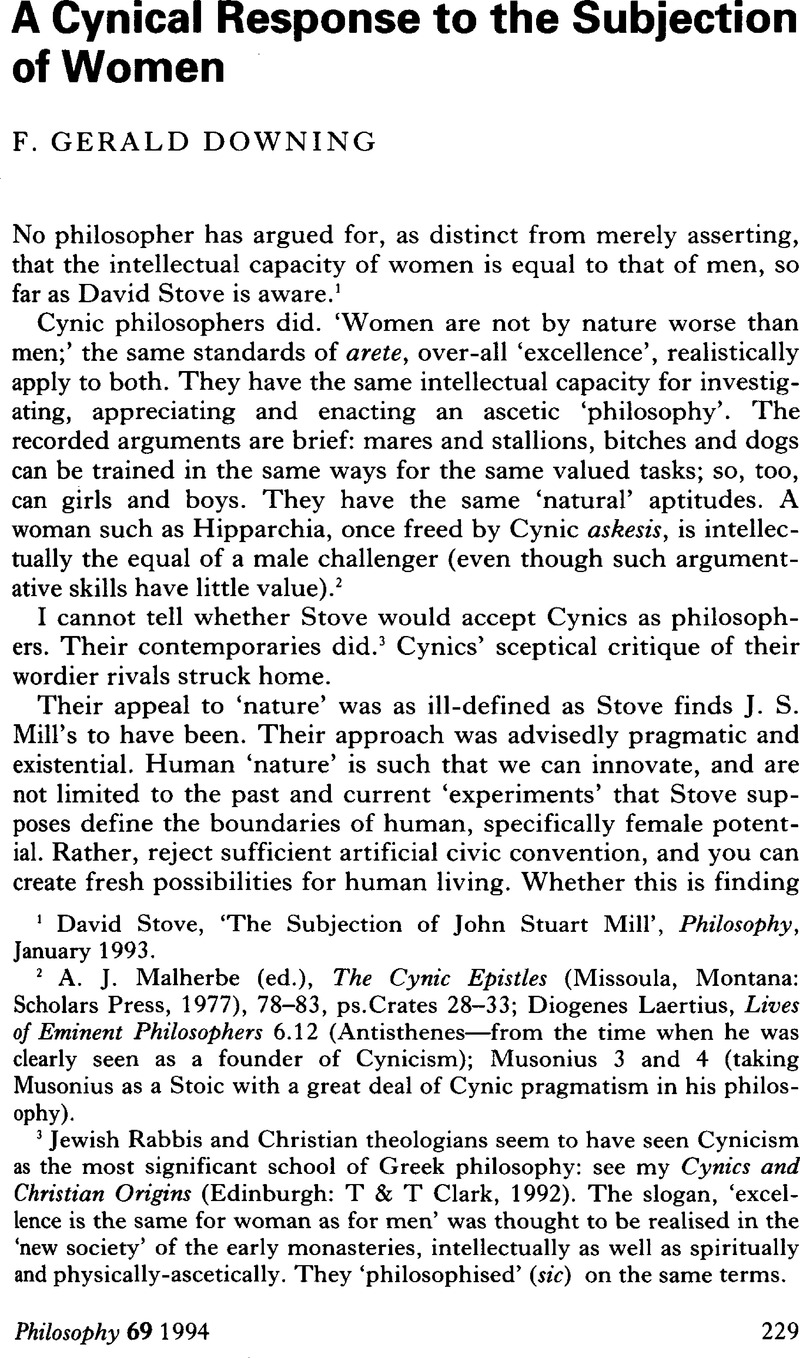Article contents
A Cynical Response to the Subjection of Women
Published online by Cambridge University Press: 30 January 2009
Abstract

- Type
- Discussion
- Information
- Copyright
- Copyright © The Royal Institute of Philosophy 1994
References
1 David, Stove, ‘The Subjection of John Stuart Mill’, Philosophy, January 1993.Google Scholar
2 Malherbe, A. J. (ed.), The Cynic Epistles (Missoula, Montana: Scholars Press, 1977), 78–83, ps.Crates 28–33; Diogenes Laertius, Lives of Eminent Philosophers 6.12 (Antisthenes–from the time when he was clearly seen as a founder of Cynicism); Musonius 3 and 4 (taking Musonius as a Stoic with a great deal of Cynic pragmatism in his philosophy).Google Scholar
3 Jewish Rabbis and Christian theologians seem to have seen Cynicism as the most significant school of Greek philosophy: see my Cynics and Christian Origins (Edinburgh: T & T Clark, 1992). The slogan, ‘excellence is the same for woman as for men’ was thought to be realised in the ‘new society’ of the early monasteries, intellectually as well as spiritually and physically-ascetically. They ‘philosophised’ (sic) on the same terms.
4 See especially ps. Crates 29.
- 1
- Cited by




